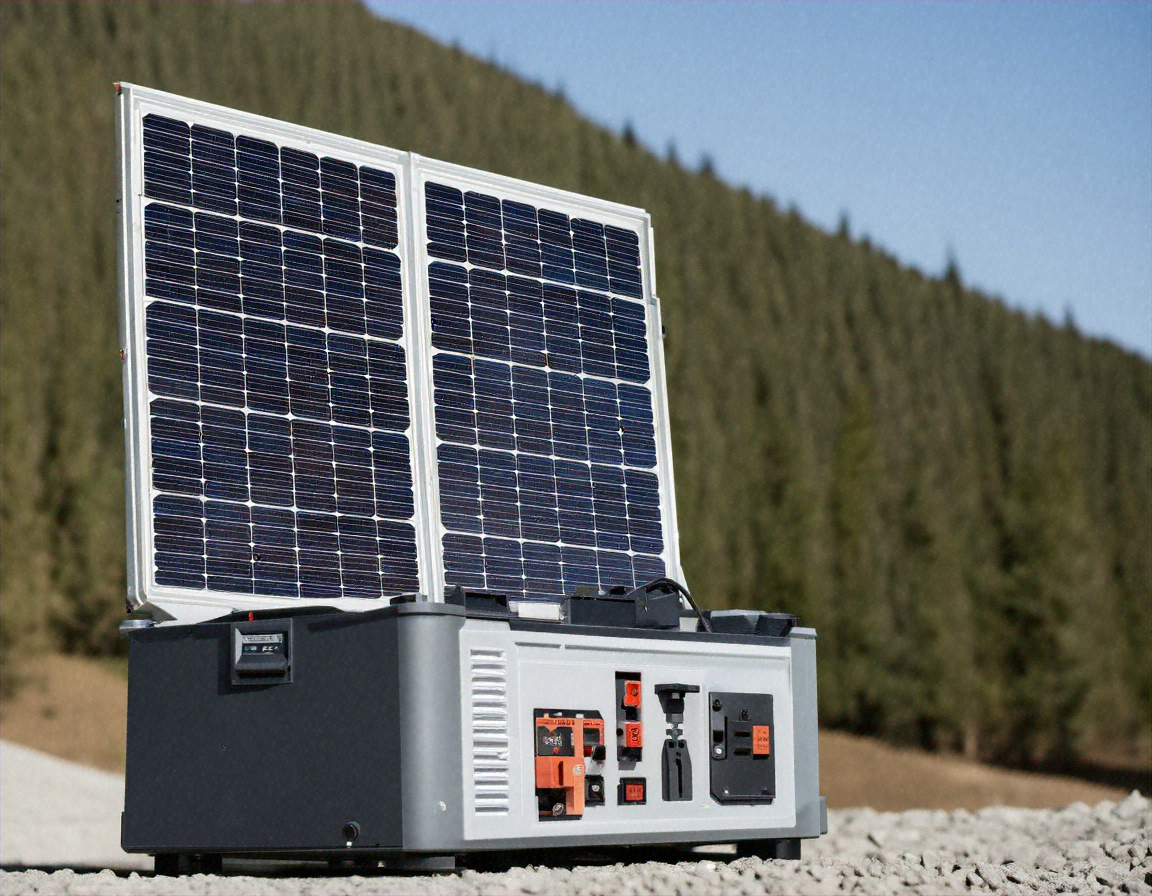Are Solar Generators Worth It? What to Know Before You Buy
Thinking about going solar? Solar generators offer portable, eco-friendly energy for home backup, travel, or emergencies. This guide explains how they work, their pros and cons, and what to consider when choosing the right model for your energy needs.

What exactly is a solar generator?
A solar generator is a portable power station that converts sunlight into electrical energy using photovoltaic panels. Unlike traditional gas-powered generators, solar generators produce clean energy without emissions or fuel costs. They typically consist of solar panels, a battery for energy storage, an inverter to convert DC to AC power, and various output ports for powering devices.
How do solar generators work?
Solar generators capture sunlight through photovoltaic panels, which convert solar energy into direct current (DC) electricity. This DC power is then stored in a battery, usually lithium-ion for its high energy density and long lifespan. When you need to use the stored energy, an inverter converts it to alternating current (AC) power, compatible with most household appliances and electronic devices.
What are the main advantages of solar generators?
One of the primary benefits of solar generators is their eco-friendly nature. They produce clean, renewable energy without emitting harmful pollutants or greenhouse gases. Solar generators are also quiet, unlike their noisy gas-powered counterparts, making them ideal for camping or use in residential areas. Additionally, they require minimal maintenance and have no ongoing fuel costs, potentially saving money in the long run.
What are the limitations of solar generators?
While solar generators offer many benefits, they do have some drawbacks. Their power output is generally lower than gas generators, which may limit their use for high-wattage appliances. Solar generators also depend on sunlight, so their charging efficiency can be affected by weather conditions and seasonal changes. Initial costs can be higher compared to traditional generators, although this may be offset by long-term savings on fuel and maintenance.
What should you consider when choosing a solar generator?
When selecting a solar generator, consider your specific power needs. Assess the wattage requirements of the devices you plan to run and choose a generator with sufficient capacity. Look at the battery capacity (measured in watt-hours) and the inverter’s continuous and peak power output. Consider the number and types of outlets provided, as well as additional features like USB ports or wireless charging capabilities.
How do solar generators compare in terms of cost and performance?
Solar generators vary widely in price and performance, depending on their capacity and features. To help you make an informed decision, here’s a comparison of some popular models:
| Model | Battery Capacity | Max Output | Key Features | Estimated Price |
|---|---|---|---|---|
| Jackery Explorer 1000 | 1002Wh | 1000W | 3 AC outlets, car port, 2 USB-C, 2 USB | $999 |
| Goal Zero Yeti 1500X | 1516Wh | 2000W | 7 ports, including USB-C PD | $1999 |
| Bluetti AC200P | 2000Wh | 2000W | 17 output ports, wireless charging | $1599 |
| EcoFlow Delta | 1260Wh | 1800W | Fast charging, 6 AC outlets | $1399 |
| Renogy Lycan 5000 | 4800Wh | 3500W | Expandable battery, home integration | $4599 |
Prices, rates, or cost estimates mentioned in this article are based on the latest available information but may change over time. Independent research is advised before making financial decisions.
When considering the cost-effectiveness of a solar generator, factor in the long-term savings on fuel and maintenance compared to gas generators. While the initial investment may be higher, solar generators can prove more economical over time, especially for frequent use or in areas with high fuel costs.
In conclusion, solar generators offer a clean, quiet, and low-maintenance alternative to traditional gas-powered generators. They’re ideal for eco-conscious consumers, outdoor enthusiasts, and those seeking energy independence. However, their effectiveness depends on your specific power needs and usage patterns. By carefully considering your requirements and comparing available options, you can determine if a solar generator is the right choice for your energy needs.




